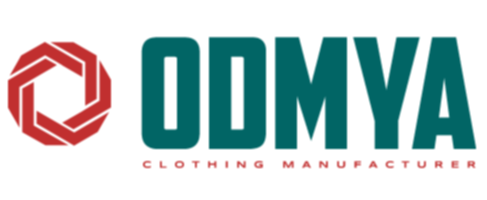Top 12 Clothing Business Ideas: Your Guide to Fashion Entrepreneurship

Introduction
Market Trends in Clothing Business
In 2020, the global apparel market was valued at approximately $1.5 trillion, expected to grow at a CAGR (Compound Annual Growth Rate) of 4.2% through 2025. It's a fertile ground for entrepreneurs with an eye for style and the stomach for risk.
Necessity for Innovation
The advent of fast fashion, changing consumer behavior, and a heightened focus on sustainability mandate the need for constant innovation in this sector. New brands face steep competition, not just from established labels but also from e-commerce giants.
Scope and Relevance of the Article
This article aspires to fuel your entrepreneurial spirit by exploring 12 profitable and scalable clothing business ideas. Whether you're a fashion aficionado or a strategic investor, these ideas are tailored to inspire you. These ventures cater to various target audiences and come with different investment requirements, ensuring there's something for everyone.
Custom T-shirt Printing
Business Model
Custom T-shirt printing is an evergreen business idea with a broad appeal. Essentially, you're offering a service where customers can get their designs or select from pre-made designs to be printed on T-shirts. You can operate online or in a physical store.
Target Audience
From companies requiring uniforms to event organizers and individual buyers, the target audience is extensive. Custom T-shirts are particularly popular among millennials and Gen Z for their uniqueness and personalization.
Start-up Costs
The basic start-up costs involve purchasing a high-quality T-shirt printer, blank T-shirts, and design software. According to industry data, initial costs can range from $2,000 to $10,000 depending on the scale and quality of your setup.
Ethical and Sustainable Fashion
Business Model
This business model hinges on selling eco-friendly, sustainable, and ethically produced clothing items. Consumers are becoming more conscious of their shopping habits, and there's a growing demand for ethical options.
Target Audience
The target audience primarily includes socially aware individuals, particularly among the 18-40 age group, who are willing to pay a premium for ethical products.
Start-up Costs
A preliminary budget for starting an ethical fashion line can vary dramatically based on sourcing, materials, and scale. However, expect to invest between $20,000 and $50,000 for a modest initial offering.
Tailoring and Alteration Services
Business Model
This business model entails offering tailoring services, either as a standalone venture or as an extension to a clothing store. Specialization could be in areas such as formal wear, casual clothing, or even uniform production.
Target Audience
This service appeals to professionals who need suits tailored, brides and grooms requiring wedding attire adjustments, and individuals with specific sizing needs.
Start-up Costs
Assuming you already possess the skills, basic start-up costs involve purchasing high-quality sewing machines, workspace setup, and materials. The investment could range from $1,000 to $5,000.
Vintage Clothing Retail
Business Model
Specializing in vintage or retro clothing provides an exciting opportunity to cater to niche fashion enthusiasts. The business can operate online, in a physical store, or even through pop-up events.
Target Audience
The target market includes collectors, fashionistas with a penchant for vintage flair, and even theater companies looking for period-appropriate attire.
Start-up Costs
Sourcing quality vintage items can be challenging but rewarding. Initial costs, including inventory, range between $5,000 and $20,000, depending on the scale and location.
Children's Clothing
Business Model
Focusing solely on children's wear—from everyday clothing to specialty items like costumes and formal wear—offers a market with frequent turnover due to growth spurts and seasonal needs.
Target Audience
Parents, grandparents, and gift-givers form the target audience. Children's clothing is often an emotional purchase, making quality and aesthetics key selling points.
Start-up Costs
Starting inventory, a small storefront or online platform, and marketing materials could set you back approximately $10,000 to $30,000.
Maternity Wear
Business Model
Maternity wear has evolved from a limited category to a diverse and fashion-forward market. Offering comfortable, stylish options for expecting mothers can be a lucrative venture.
Target Audience
Obviously, expecting mothers make up the primary audience, but do not overlook family members and friends who are often gift-givers.
Start-up Costs
Initial costs, including product development, manufacturing, and marketing, could range from $15,000 to $40,000.
Fashion Subscription Boxes
Business Model
Subscription box services that offer curated fashion selections delivered to customers' doorsteps each month are all the rage. You can customize these based on style, season, or specific customer needs.
Target Audience
Busy professionals, individuals who dislike shopping, and those keen to keep up with fashion trends form the core audience.
Start-up Costs
Aside from inventory, costs for packing materials, a subscription management platform, and marketing can push initial investments to $20,000 to $50,000.
Sportswear Brand
Business Model
Creating a brand that specializes in sportswear caters to an ever-growing market of fitness enthusiasts and athletes. The focus can range from high-performance gear to casual activewear.
Target Audience
Athletes, gym-goers, and anyone with an active lifestyle form the target customer base.
Start-up Costs
Considering product development, manufacturing, and marketing, initial costs can vary widely but expect to invest around $30,000 to $100,000 for a well-rounded initial launch.
Clothing Rentals
Business Model
Clothing rentals offer a solution for those who need high-end garments for specific events but don't wish to purchase them. This model has been particularly successful for formal wear and designer pieces.
Target Audience
The primary audience includes event-goers such as wedding attendees, corporate function attendees, and individuals celebrating milestones like anniversaries.
Start-up Costs
Inventory will be your most significant expense, along with a robust online booking system. A budget of $20,000 to $60,000 is a reasonable expectation for initial costs.
Specialized Workwear
Business Model
Specialized workwear caters to professions requiring unique clothing items, such as medical scrubs, construction vests, or chef's attire. These are generally long-term purchases, establishing customer loyalty.
Target Audience
The target audience varies by specialization but could include medical professionals, chefs, construction workers, and more.
Start-up Costs
Investment in high-quality, durable fabrics, and specialized design could bring your initial costs to around $15,000 to $45,000.
Online Boutique
Business Model
An online boutique allows you to reach a global audience without the overheads associated with a physical store. You can specialize or offer a wide range of clothing styles.
Target Audience
This model appeals to anyone with internet access, though you can narrow your audience based on your niche (e.g., luxury items, affordable fashion, etc.)
Start-up Costs
The costs primarily include inventory, website setup, and marketing, ranging from $10,000 to $30,000 depending on your scale and advertising spend.
Pop-up Shops
Business Model
Pop-up shops offer a unique temporary physical selling space for your clothing line. They're an excellent way for online retailers to have a physical presence temporarily.
Target Audience
The target audience can vary but usually includes shoppers interested in exclusive or limited-time offerings.
Start-up Costs
Venue rental, setup, and limited inventory can cost around $2,000 to $10,000, depending on the location and duration.

Conclusion
Summary of Business Ideas
The 12 business ideas outlined here offer a comprehensive look into the diverse opportunities available in the clothing industry. The aim is to inspire potential entrepreneurs to take the plunge into this vibrant market.
Next Steps for Aspiring Entrepreneurs
Now that you're armed with these business ideas, the next step is detailed market research, creating a business plan, and taking actionable steps towards launching your venture.
FAQs
1. What is the most profitable clothing business idea?
There's no one-size-fits-all answer. Profitability depends on various factors like target audience, initial investment, and market trends.
2. How much do I need to start a clothing business?
Initial costs can range from as low as $1,000 for a small tailoring service to up to $100,000 for a specialized sportswear brand.
3. Can I run a clothing business from home?
Yes, many businesses, such as online boutiques or custom T-shirt printing, can be operated from home, reducing overhead costs.
4. What are the risks involved in the clothing business?
Some common risks include fashion trends changing rapidly, inventory mismanagement, and high competition, both online and offline.
5. How do I identify my target audience?
Market research, including surveys and competitive analysis, can help you identify who is most likely to buy your products.
6. Is the clothing industry environmentally impactful?
Yes, which is why ethical and sustainable fashion has become increasingly popular as consumers seek environmentally responsible options.
7. How do I source sustainable materials?
Several directories and trade shows focus solely on sustainable textiles. Research and networking are key.
8. What are Fashion Subscription Boxes?
These are services delivering curated fashion items to your doorstep monthly or seasonally, based on personal style profiles.






-500x500.jpg)
-500x500.jpg)
-500x500.jpg)
-500x500.jpg)
-500x500.jpg)